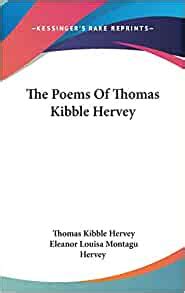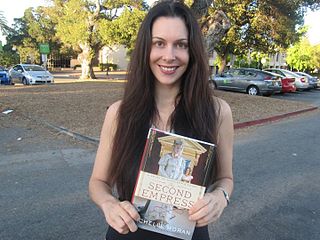A Quote by Thomas Kibble Hervey
He stood beside a cottage lone
And listened to a lute,
One summer's eve, when the breeze was gone,
And the nightingale was mute.
Related Quotes
I fell for her in summer, my lovely summer girl, From summer she is made, my lovely summer girl, I’d love to spend a winter with my lovely summer girl, But I’m never warm enough for my lovely summer girl, It’s summer when she smiles, I’m laughing like a child, It’s the summer of our lives; we’ll contain it for a while She holds the heat, the breeze of summer in the circle of her hand I’d be happy with this summer if it’s all we ever had.
Music exists when rhythmic, melodic or harmonic order is deliberately created, and consciously listened to, and it is only language-using, self-conscious creatures ... who are capable of organizing sounds in this way, either when uttering them or when perceiving them. We can hear music in the song of the nightingale, but it is music that no nightingale has heard.
Beneath our feet a fairy pathway flows, The grass still glitters in the summer breeze, The dusky wood, and distant copse appear, And that lone stream, upon whose chequer?d face We mused, when noon-rays made the pebbles gleam, Is mirror?d to the mind: though all around Be rattling hoofs and roaring wheels, the eye Is wand?ring where the heart delights to dwell.
A summer breeze can be very refreshing; but if we try to put it in a tin can so we can have it entirely to ourselves, the breeze will die. Our beloved is the same. He is like a breeze, a cloud, a flower. If you imprison him in a tin can, he will die. Yet many people do just that. They rob their loved one of his liberty, until he can no longer be himself. They live to satisfy themselves and use their loved one to help them fulfill that. That is not loving; it is destroying.
Selden and Lily stood still, accepting the unreality of the scene as a part of their own dream-like sensations. It would not have surprised them to feel a summer breeze on their faces, or to see the lights among the boughs reduplicated in the arch of a starry sky. The strange solitude about them was no stranger than the sweetness of being alone in it together.
Adam and Eve - and especially Eve - are victims of the greatest character assassination the world has ever known. Eve is not secondary. Eve, if anything, is the great initiator in the story. She's the first independent woman. For me, rediscovering that Eve was the greatest bad**s women of all time was a revelation.
A really humbling experience that we've had was touring on Post-Nothing, was having people come up to us and tell that story about Post-Nothing. Especially as the tour went on, people saying, "I listened to your album when it first came out and I listened to it every day for the summer of 2009. That was my album for that summer; that was my album for this time in my life." When somebody tells you that, it's a pretty amazing feeling, and very humbling.





































